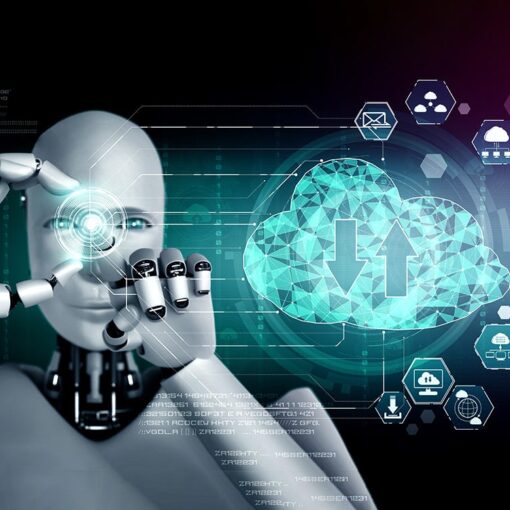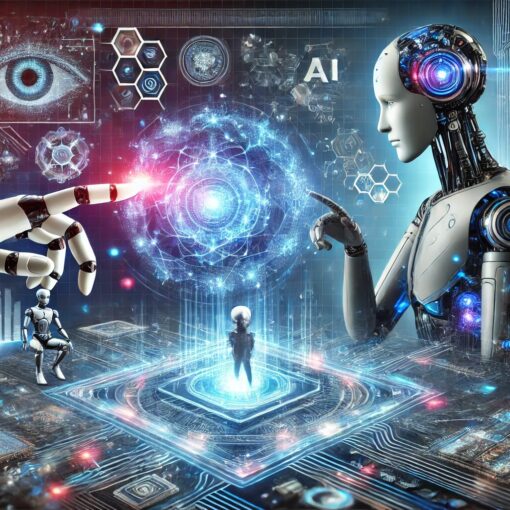Transforming Daily Experiences
Introduction: AI in Your Daily Routine
Artificial Intelligence (AI) isn’t just about futuristic robots or high-tech laboratories—it’s woven into the fabric of our daily lives. From personalized recommendations to smart home devices, AI is simplifying tasks, enhancing experiences, and bringing convenience to everyday activities.
In this next installment of the AI Terminologies Series, we’ll explore how AI impacts our day-to-day experiences, often in ways we don’t even realize, and how we can make the most of these innovations.
1. Personalized Recommendations: Tailoring Your Choices
AI’s Role:
AI analyzes your behavior and preferences to suggest products, content, and experiences tailored just for you.
Applications:
- Streaming Services: Platforms like Netflix and Spotify recommend shows, movies, and songs based on your viewing or listening history.
- E-commerce: Amazon suggests items you’re likely to purchase, boosting your shopping experience.
- Social Media: AI curates your feed, prioritizing posts and ads based on your interactions.
Example:
Spotify’s “Discover Weekly” playlist uses AI to analyze your listening habits and recommend new tracks.
2. Smart Home Devices: Automating Everyday Tasks
AI’s Role:
AI-powered smart home devices automate routines, enhance security, and create a more comfortable living environment.
Applications:
- Voice Assistants: Devices like Alexa and Google Home control lights, appliances, and schedules via voice commands.
- Smart Thermostats: AI learns your temperature preferences and optimizes energy use.
- Home Security: AI-enabled cameras detect unusual activity and send real-time alerts.
Example:
Nest Thermostats use AI to learn your habits and adjust the temperature automatically, reducing energy costs.
3. AI in Transportation: Smarter, Safer Travel
AI’s Role:
AI improves navigation, enhances safety, and enables smarter transportation systems.
Applications:
- Navigation Apps: AI analyzes traffic data to suggest the fastest routes (e.g., Google Maps, Waze).
- Ride-Sharing: Platforms like Uber and Lyft use AI to match drivers with riders efficiently.
- Autonomous Vehicles: AI powers self-driving cars, making travel safer and more efficient.
Example:
Tesla’s Autopilot feature uses AI to assist with highway driving, lane changes, and parking.
4. Healthcare Apps: Empowering Your Wellbeing
AI’s Role:
AI-enabled healthcare apps monitor health, provide insights, and encourage healthier lifestyles.
Applications:
- Fitness Trackers: Devices like Fitbit and Apple Watch use AI to analyze your activity levels and suggest improvements.
- Symptom Checkers: Apps like Ada Health use AI to assess symptoms and recommend next steps.
- Mental Health Support: AI chatbots like Woebot provide conversational support for stress and anxiety.
Example:
MyFitnessPal uses AI to track your diet and suggest meal plans tailored to your fitness goals.
5. Virtual Assistants: Simplifying Work and Life
AI’s Role:
AI-driven virtual assistants handle tasks, answer questions, and keep you organized.
Applications:
- Email Management: AI prioritizes important emails and filters spam.
- Scheduling: Virtual assistants like Microsoft Cortana schedule meetings and send reminders.
- Note-Taking: Tools like Otter.ai transcribe meetings and summarize key points.
Example:
Google Assistant integrates with your calendar and smart devices to streamline your daily schedule.
6. Online Shopping and Retail: Smarter Experiences
AI’s Role:
AI enhances the online shopping experience, making it faster, more intuitive, and tailored.
Applications:
- Virtual Try-Ons: AI allows you to visualize products like clothing or furniture in real life.
- Chatbots: AI assistants answer queries and guide you through purchases.
- Dynamic Pricing: AI adjusts prices based on demand, availability, and customer preferences.
Example:
IKEA’s Place app uses AI and AR to let you see how furniture would look in your space.
7. AI in Entertainment: Immersive and Interactive
AI’s Role:
AI is revolutionizing how we consume and create entertainment.
Applications:
- Content Creation: AI generates scripts, music, and artwork.
- Gaming: AI creates smarter, more interactive non-player characters (NPCs).
- Real-Time Translations: AI provides subtitles and translations for global content.
Example:
Deepfake technology in movies enables realistic visual effects, such as digitally recreating actors.
8. Financial Tools: Managing Money Smarter
AI’s Role:
AI simplifies personal finance management and enhances security.
Applications:
- Budgeting Apps: AI tracks your spending and provides saving tips.
- Fraud Detection: Banks use AI to identify suspicious transactions.
- Investment Tools: Robo-advisors recommend investment strategies based on your financial goals.
Example:
Mint uses AI to categorize expenses, set budgets, and track financial goals.
9. Everyday Communication: Breaking Language Barriers
AI’s Role:
AI-powered tools enhance communication, breaking language and accessibility barriers.
Applications:
- Real-Time Translation: Tools like Google Translate use AI to translate speech and text instantly.
- Speech-to-Text: AI transcribes voice into text for accessibility.
- Grammar Assistance: Grammarly uses AI to refine writing and improve clarity.
Example:
Zoom’s live transcription feature uses AI to provide real-time subtitles for meetings.
Challenges of AI in Daily Life
- Privacy Concerns:
- AI systems collect and analyze personal data, raising privacy issues.
- Over-Reliance:
- Excessive dependence on AI tools can reduce critical thinking and decision-making skills.
- Digital Divide:
- Not everyone has equal access to AI technologies, leading to inequalities.
Solutions:
- Use AI tools with robust privacy policies.
- Balance AI use with manual problem-solving.
- Support initiatives promoting digital literacy and access.
Future of AI in Daily Life
- Seamless Integration:
- AI will become even more embedded in daily devices, operating in the background effortlessly.
- Proactive Assistance:
- AI systems will predict needs and take action before users request help.
- Personalized Ecosystems:
- AI will connect all aspects of daily life into cohesive, personalized ecosystems, such as smart homes integrated with fitness, work, and entertainment systems.
Conclusion: Living Smarter with AI
AI is no longer a futuristic concept; it’s an integral part of our daily lives, making tasks simpler, experiences richer, and life more connected. By understanding and embracing these innovations, we can use AI to enhance productivity, improve health, and enjoy life more fully.
Stay tuned to Explore AIQ as we continue to uncover the ways AI is shaping our world and empowering us in ways we never imagined.




